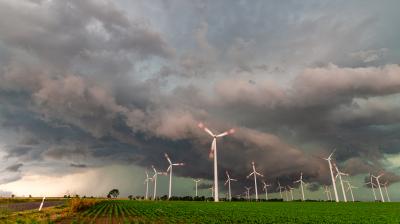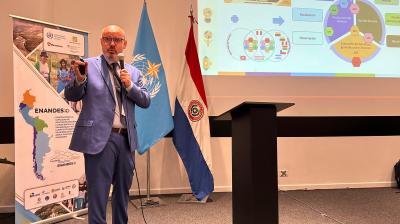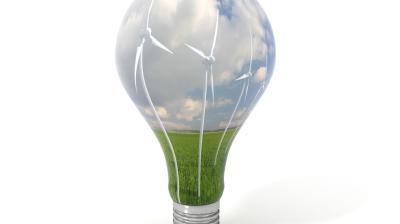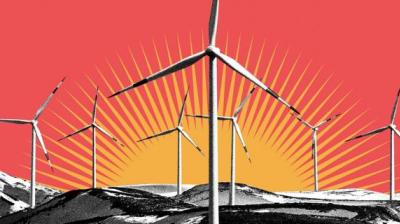WMO supports Net Zero Energy Transition
The World Meteorological Organization is stepping up its activities to promote tailored weather and climate information and forecasts to support the transition to renewable energy and away from polluting fossil fuels.
Reaching net zero by 2050 will mean a complete transformation of our global energy system, with a switch to lower emissions electricity production and increased energy efficiency.
But the transition to clean energy calls for investment in improved weather, water and climate services that can be used to ensure that our energy infrastructure is resilient to climate-related shocks, to inform on measures to increase energy efficiency across multiple sectors, and to harness renewable sources of energy.
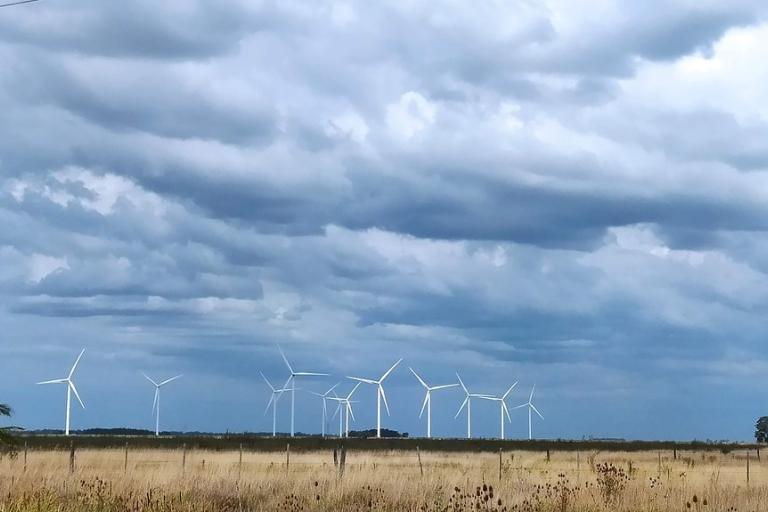
A new WMO publication, Integrated Weather and Climate Services in Support of Net Zero Energy Transition provides guidelines and examples of best practices of these services. It harnesses the expertise of nearly 50 authors coordinated by the WMO services commission Study group for Integrated energy services.
“This publication provides well-timed support for this crucial decade of energy transition to net zero. By enabling WMO Members and their National Meteorological and Hydrological Services, as well as energy sector companies and practitioners, to deliver and use integrated weather and climate services, national strategies on clean and sustainable energy for all can be achieved in a timely and effective manner,” says Prof. Petteri Taalas, WMO Secretary-General.
WMO organized a webinar to launch the publication on 29 March. The event included speakers from meteorological services providers and energy sector users who highlighted the importance of integrated energy services for building decarbonized and resilient energy systems.
In her opening remarks, WMO Deputy Secretary-General Dr Elena Manaenkova stressed how WMO has placed a high level of importance on building effective services to key socio-economic sectors, especially for energy which is the backbone of economies and development.
“In order to limit temperature increase to 1.5 ° Celsius, energy generation must radically shift from burning fossil fuels to harness renewable sources like wind, solar and hydropower. Such renewable sources are modulated by weather and climate patterns, thus indicating that the role of weather water and climate services is compelling for the energy transition,” she said.
Why Net Zero Energy Transition is important
The Intergovernmental Panel on Climate Change Sixth Assessment Synthesis Report highlighted that the last decade was warmer than any period since 125,000 years ago and that global greenhouse gas emissions have continued to increase in the last century due to unsustainable use of resources.
About 73 % of global greenhouse gas emissions are from the energy sector (including industry, transport and buildings). A deep and rapid energy transformation is therefore needed to reduce emissions, whilst meeting growing demand for energy supply.
Energy transition towards net zero emissions supports the United Nations Sustainable Development Goals and has multiple benefits for the economy, society, public health, climate, and environment.
Early Warnings for All
This publication provides guidelines required to strengthen the development, and enable a widespread uptake, of integrated Water and Climate Services for the energy sector, which are needed to accelerate the transition towards net zero emissions.
The aim of this publication is to:
- Review the current state of knowledge on Weather & Climate Services value chains in the energy industry
- Benchmark best practices and identify knowledge gaps and barriers to the uptake of these services
- Describe implementation approaches, including business models, public–private–academic partnerships and capacity-development programmes to assist with the deployment of these services
- Provide additional context and guidance based on “good practices” to support efforts to accelerate the transition towards net zero emission
The publication also contributes to the initiative of Early Warnings for All by sharing cases provided by the National Meteorological and Hydrological Services (NMHSs) related with early weather warnings to safeguard electricity supply, especially during flood season and extreme weather events.
More information: Recording of the webinar


